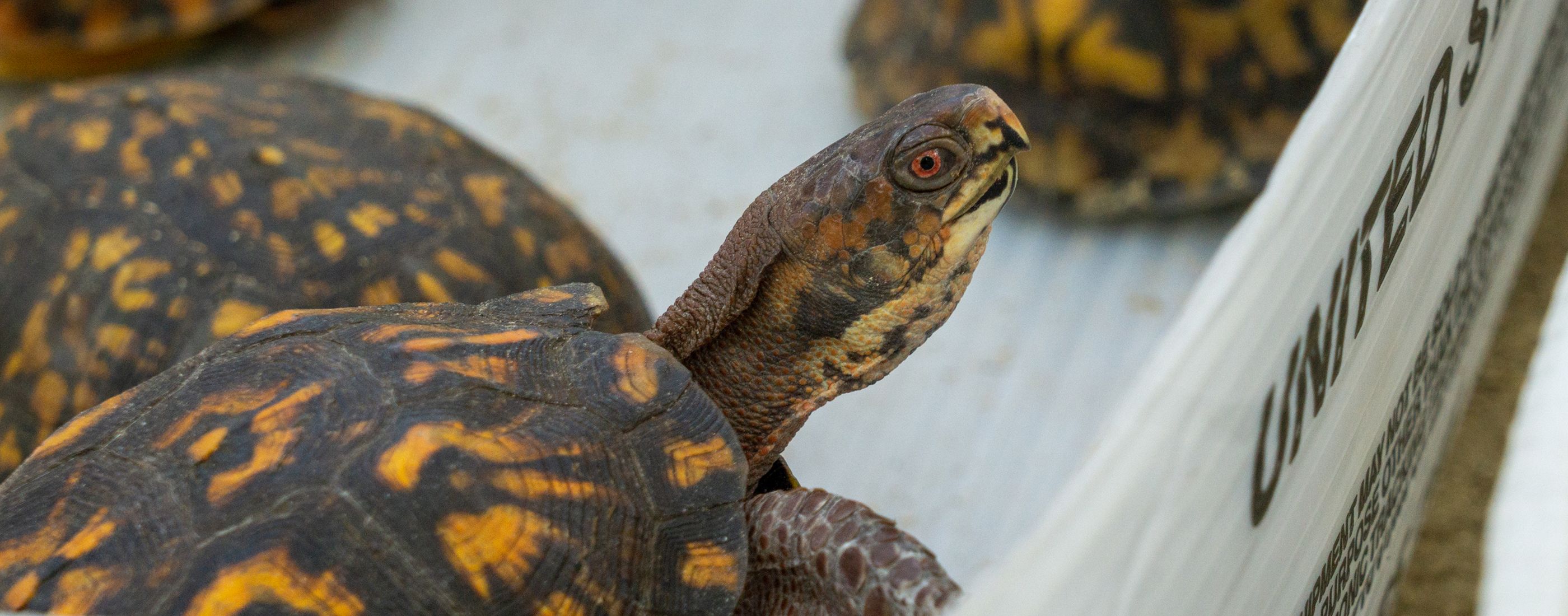
Trade Regulation & Repatriation
STATUS
Ongoing
Region
Region Worldwide
Protected Species
Multiple Species
About the Program
Turtles and tortoises are among the most heavily traded vertebrates on the planet, used in many cultures for food, medicine, cultural objects, or the pet trade. They’ve been traded around the globe for thousands of years, but with the acceleration of globalization, the trade has peaked, particularly in the Southern Hemisphere. The Turtle Conservancy and its partners are committed to monitoring the trade and to help local authorities with law enforcement and managing confiscations.
Help us raise funds to help this important intiative
Fundraising Goal: $50,000
To support confiscation management and repatriations
Donate Now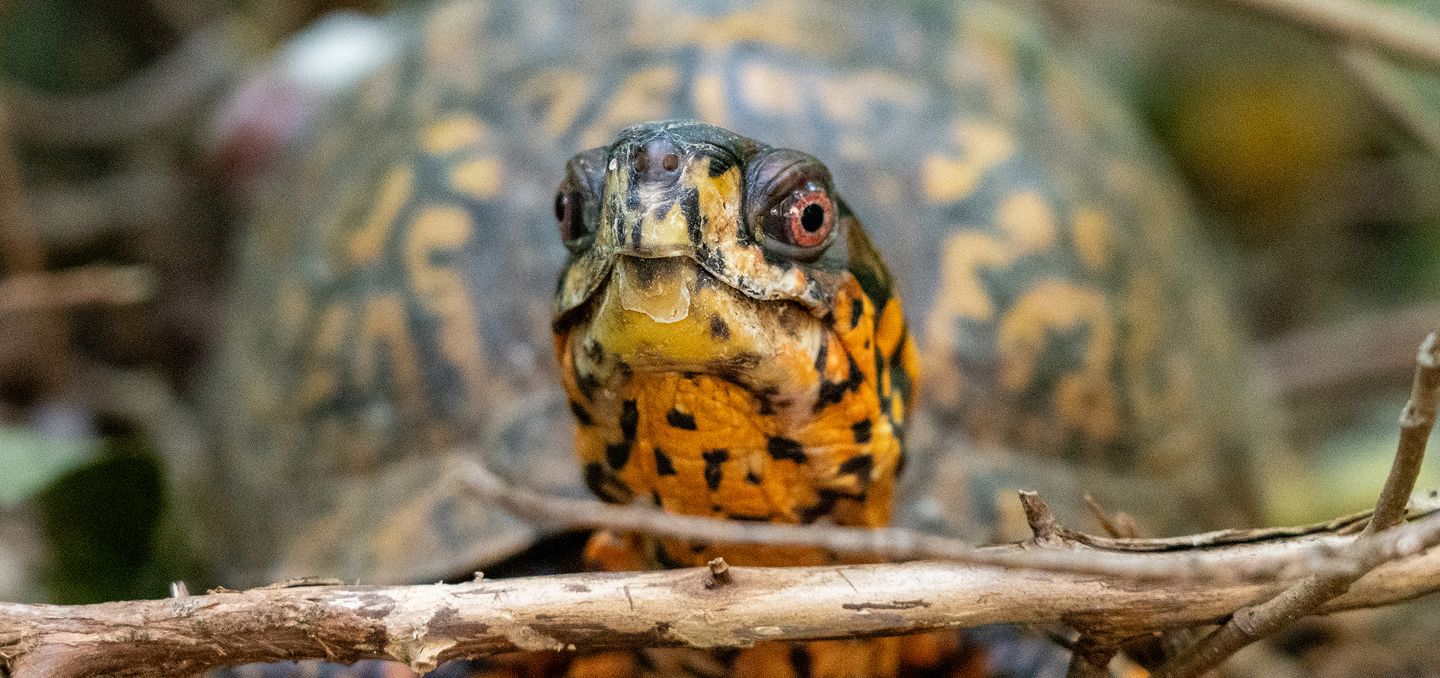
Direct poaching for the food or pet trade has driven turtle species to extinction. An example of this is the case of the Rote Island Snake-neck Turtle (Chelodina mccordi), driven to extinction due to poaching after being described by science. The Ploughshare Tortoise (Astrochelys yniphora) is another example, as well as the Yellow-faced Mud Turtle (Kinosternon vogti). Both species are on the brink of extinction because of the strong demand by the pet trade, mostly from Europe and Southeast Asia. One specimen of these turtles can be worth a vast sum of money fueling the black market.
Often a direct consequence of poverty, wildlife poaching is becoming a viable profession for many in impoverished nations. Poaching rhino horn and ivory continues throughout the world. Similarly, poaching turtles for food, traditional medicine, and as pets is growing at an alarming rate.
Unfortunately, poaching animals does not carry the same punishments as such black market trades as firearms and drugs. Shorter prison times and smaller fines enable intermediaries to pursue this commerce with little consequence. Government bribes and connections help countless others evade prosecution.
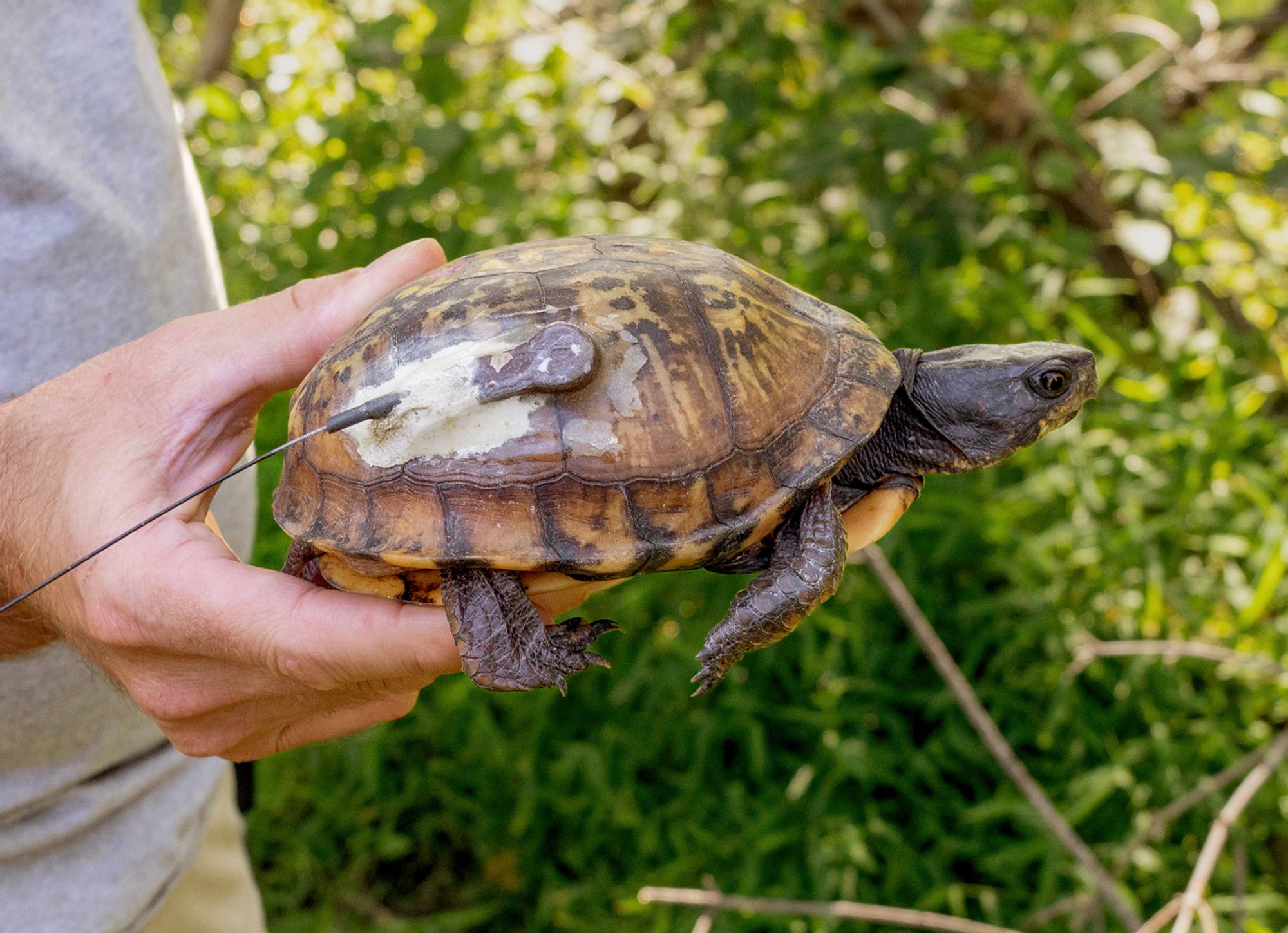
Confiscated Eastern Box turtle equipped with a transmitter to track its movements post release
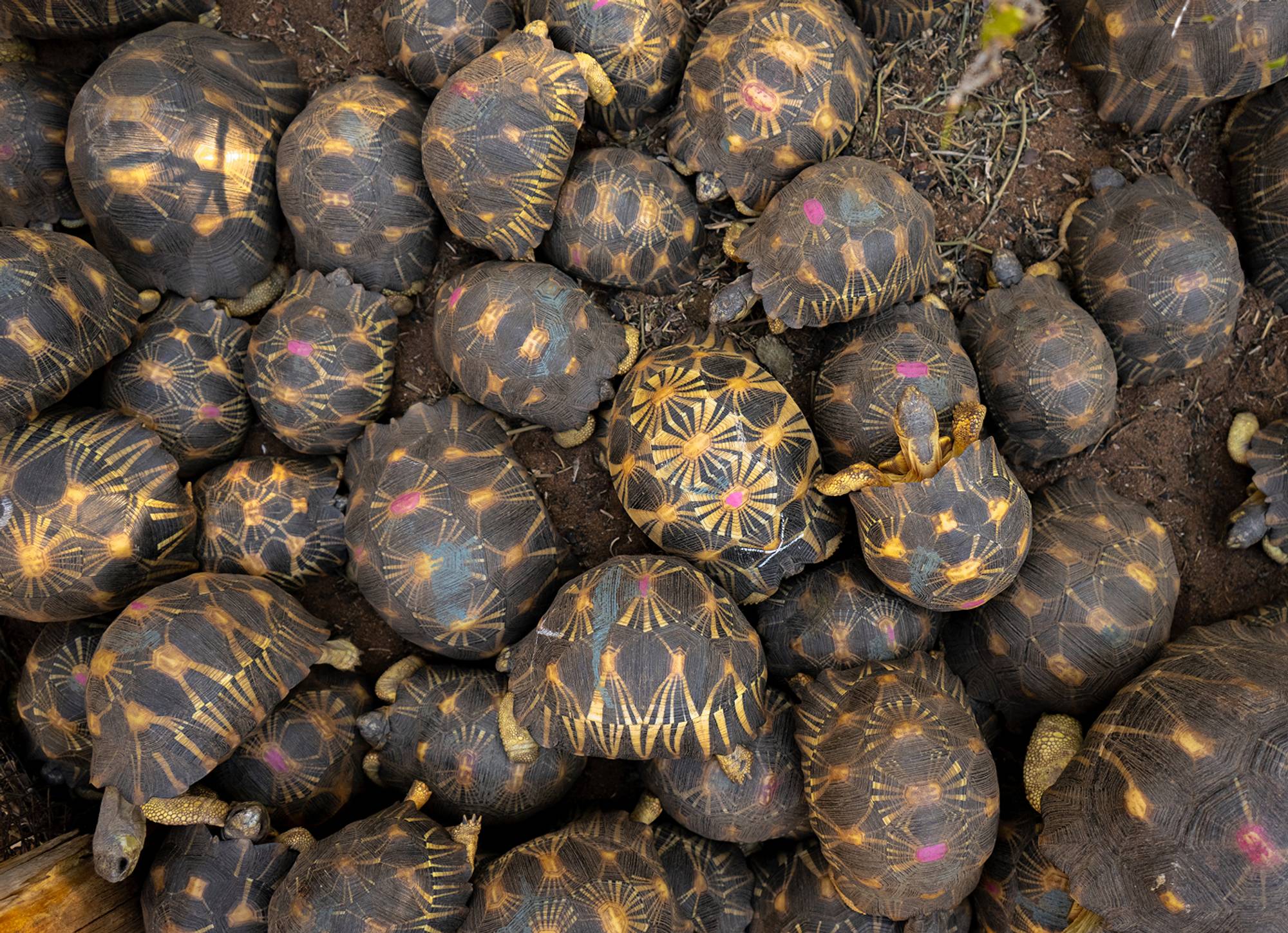
Confiscated Radiated tortoises (Astrochelys radiata) in Madagascar
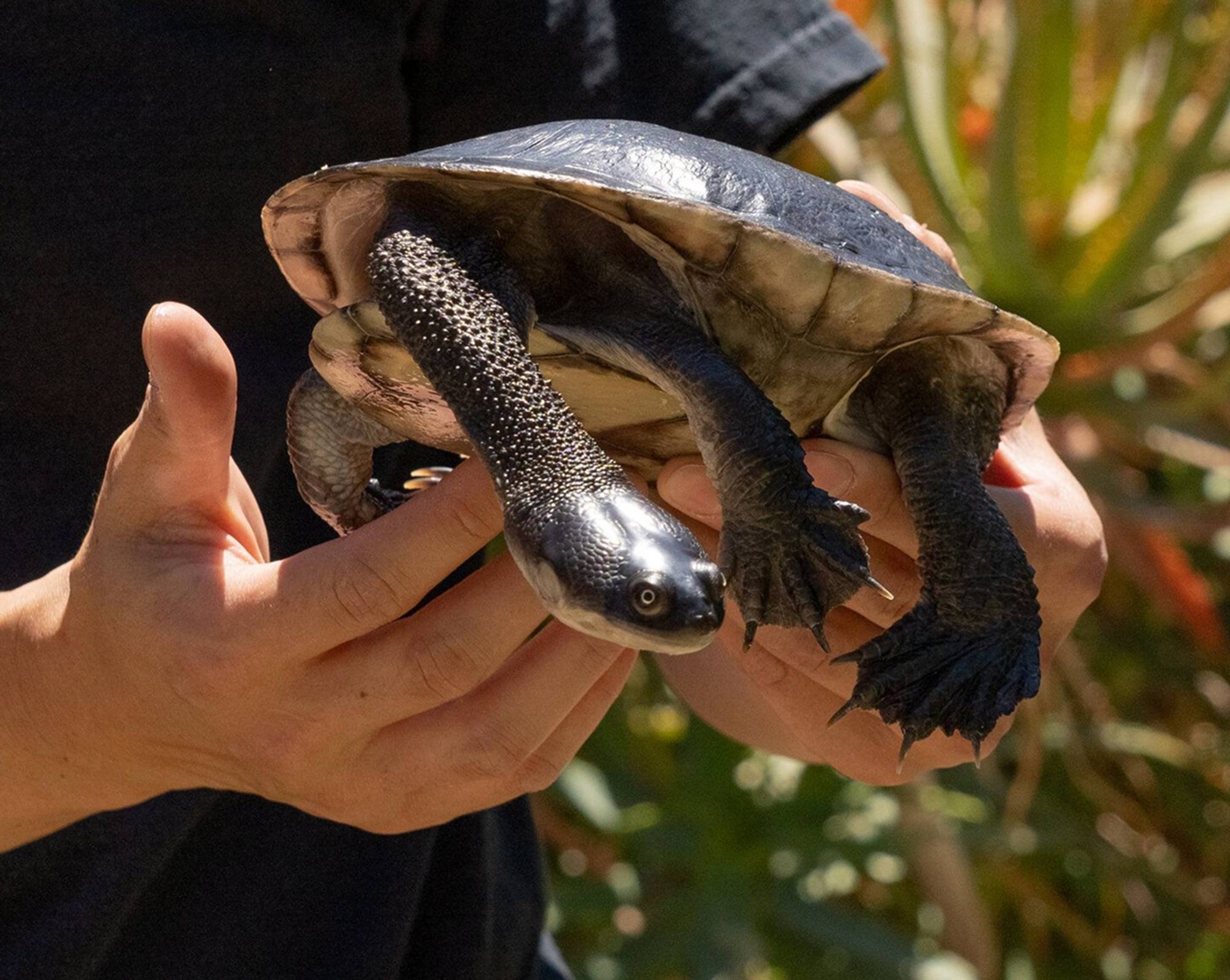
Rote Island Snake-neck turtle (Chelodina mccordi)
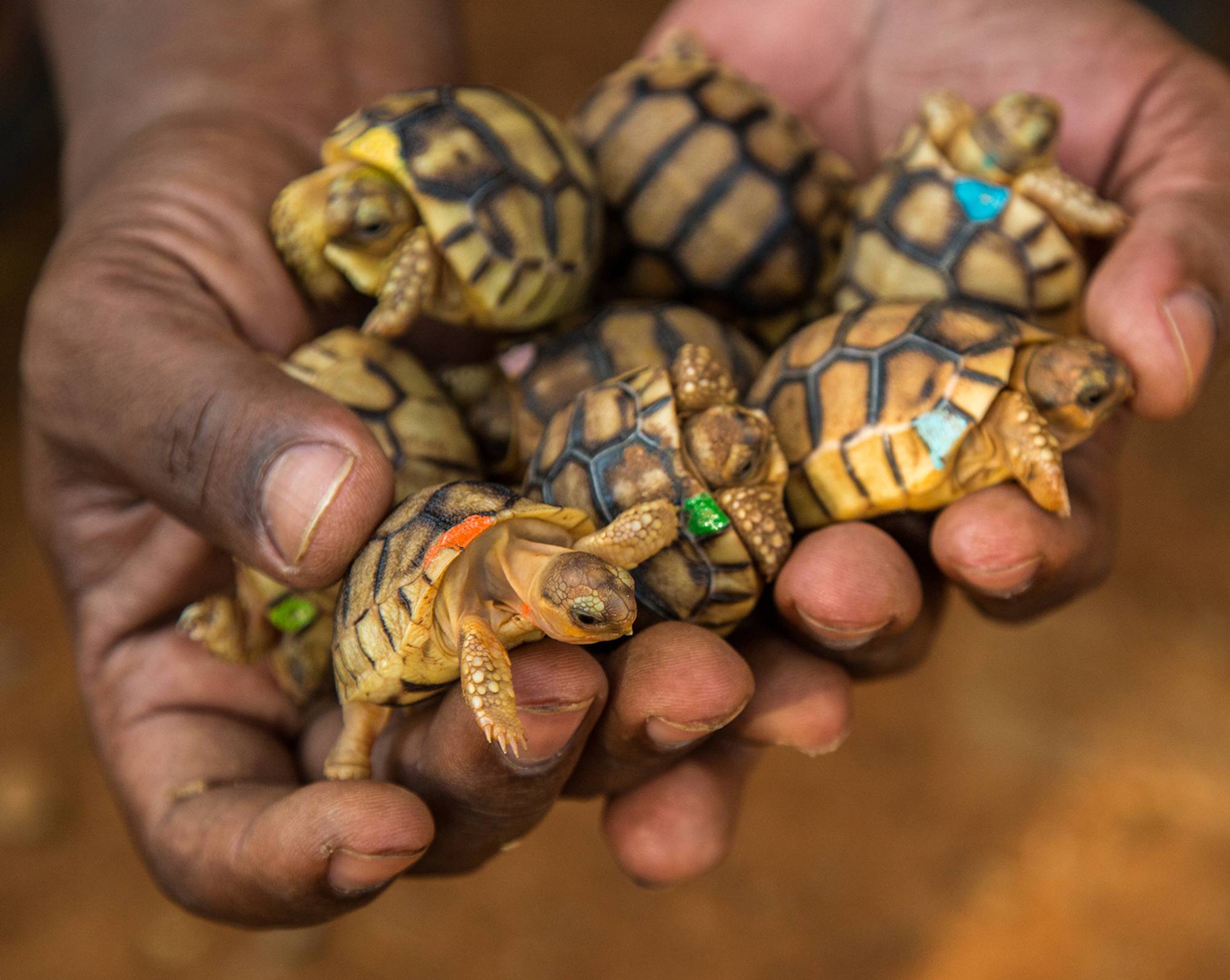
Juvenile Ploughshare Tortoises (Astrochelys yniphora) from Madagascar
How we protect the species
The Turtle Conservancy monitors and helps fund conservation efforts to protect turtles from illegal trade. We also participate in management of confiscations—internationally in Palawan in 2015 with Siebenrockiella leytensis, or in 2018 in Madagascar with Astrochelys radiata. Throughout the years, the TC has also rescued a significant number of Ploughshare Tortoises from the illegal trade. Those animals are now part of our breeding captive colony. We are documenting the trade by producing documentaries and other media in order to raise awareness and prevent people from purchasing illegal animals.
The TC is also part of the AZA SAFE American Turtle Program. Through this network, we are joining forces with state wildlife agencies, academics, non-government organizations, and law enforcement to tackle turtle trade in the US. Unfortunately, North American turtles are seriously threatened because of the demand, particularly Box turtles (Terrapene carolina), Wood turtles (Glyptemys insculpta) or Spotted Turtles (Clemmys guttata). The Turtle Conservancy has rescued more than 500 turtles, including 169 from 18 species in 2023. The estimated care for a single poached turtle is roughly $1,000 per animal in the first year. With some turtles living more than 100 years, the burden of housing and caring for confiscations is a serious problem. In 2024, for the first time, the TC successfully repatriated American turtles back into the wild in New Jersey after they were confiscated in California.
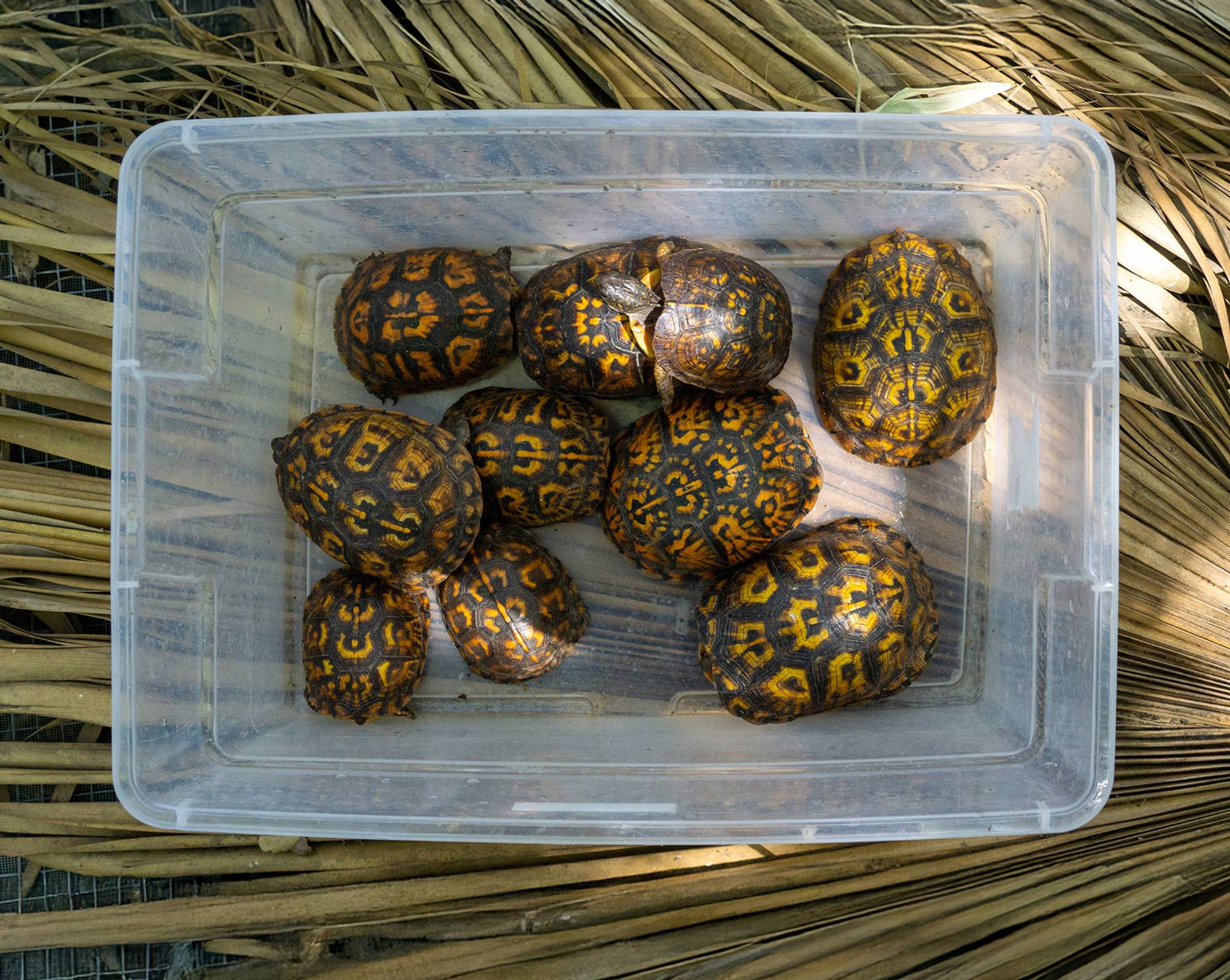
If you ever want a turtle, please buy legal, captive-bred animals. Buying or adopting a turtle is a major commitment that requires research about their care. You can report any suspicious illegal activity to the Turtle Conservancy.









